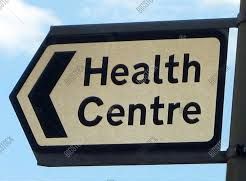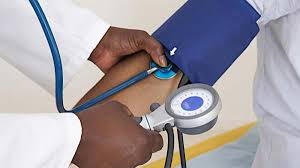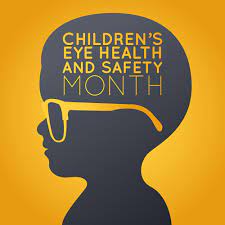
Explore Our Private Doctor Services Today
Health Centre vs. Hospital vs. Private Doctor services: When Should You Visit Each?
Navigating healthcare options can be confusing, especially when deciding between a health centre, a hospital, and a private doctor. Understanding the differences and knowing when to choose one over the other can significantly impact the quality of care you receive. we will now clarify these differences, explain each type of facility, and introduce the Emergency Severity Index (ESI) system to help guide your decision.
What is a Health Centre?
A health centre, often referred to as a clinic, is a facility that provides a range of outpatient services. These services typically include:
- Preventive Care: Immunizations, screenings, and wellness check-ups.
- Primary Care: Routine visits with a general practitioner (GP) for non-emergency issues like colds, minor injuries, and chronic condition management.
- Specialty Services: Some health centres may offer services like physiotherapy, mental health counseling, and dental care.
Health centres are ideal for managing ongoing health conditions, receiving preventive care, and treating minor illnesses and injuries. They are generally staffed by a team of healthcare professionals including doctors, nurses, and physician assistants.

Preventive care involves measures taken to prevent illnesses or diseases before they occur, rather than treating them after they have developed. It focuses on maintaining wellness and reducing the risk of chronic conditions. Key components of preventive care include:
- Screenings and Tests: Regular health screenings (like blood pressure, cholesterol, and cancer screenings) to detect potential health issues early.
- Immunizations: Vaccinations to protect against diseases such as influenza, measles, and COVID-19.
- Lifestyle Counseling: Guidance on diet, exercise, smoking cessation, and other lifestyle factors that affect overall health.
- Preventive Medications: Use of medications to prevent diseases (e.g., statins for heart disease prevention).
Primary care is the day-to-day healthcare given by a healthcare provider. Primary care providers (PCPs) are often the first point of contact for patients and provide comprehensive and continuous care. They play a critical role in coordinating other types of healthcare services that a patient might need. Key aspects of primary care include:
- General Health Management: Regular check-ups, management of chronic diseases (like diabetes and hypertension), and treatment of acute illnesses.
- Health Promotion: Advice and support on healthy living and disease prevention.
- Coordination of Care: Referring patients to specialists and coordinating care among various healthcare providers.
- Patient Education: Informing patients about their health conditions and treatment options.
Specialty services are medical services provided by specialists who have advanced training and expertise in a specific area of medicine. These services are typically required for complex or specific health issues that go beyond the scope of primary care. Key aspects of specialty services include:
- Focused Expertise: Specialists in fields such as cardiology, dermatology, neurology, orthopedics, oncology, etc.
- Advanced Diagnostics and Treatments: Use of specialized tests, procedures, and treatments tailored to specific conditions.
- Referral-Based: Patients usually need a referral from a primary care provider to access specialty services.
- Collaborative Care: Specialists often work in conjunction with primary care providers to ensure comprehensive care for the patient.
What is a Hospital?

A hospital is a medical facility equipped to handle a wide range of health conditions, from routine procedures to critical emergencies. Hospitals offer:
- Emergency Care: Immediate treatment for severe or life-threatening conditions.
- Inpatient Care: Services that require admission, such as surgeries, childbirth, and treatment for serious illnesses.
- Specialized Departments: Intensive care units (ICU), surgical wards, oncology departments, and more.
Hospitals are staffed with specialized medical personnel, including surgeons, emergency physicians, and specialists, providing comprehensive care that often requires advanced diagnostic tools and treatments.
What is a Private Doctor?
A private doctor, or private practice physician, is a medical professional who operates independently or within a small group practice. Visiting a private doctor typically offers:
- Personalized Care: Continuity of care with a dedicated physician who knows your medical history.
- Convenience: Flexible scheduling and shorter wait times compared to larger facilities.
- Specialized Attention: Time for thorough consultations and a tailored approach to treatment.
Private doctors can handle a wide range of non-emergency health issues, similar to services provided by health centres, but often with a more personalized touch.
Understanding the ESI System

The Emergency Severity Index (ESI) is a five-level triage system used in emergency departments to classify patients based on the severity of their condition and the resources they are likely to require. It ranges from ESI-1 (most urgent) to ESI-5 (least urgent). The goal is to prioritize patients who need immediate care and ensure efficient use of emergency department resources. Here’s a detailed explanation of the ESI system:
ESI Levels
- ESI Level 1: Immediate Life-Saving Intervention Required
- Criteria: Patients need immediate, life-saving intervention.
- Examples: Cardiac arrest, severe respiratory distress, major trauma, unconsciousness.
- Action: Immediate evaluation and treatment. These patients are seen first.
- ESI Level 2: High Risk, Situationally Urgent
- Criteria: Patients are at high risk of deterioration or present with a condition that could rapidly become life-threatening.
- Examples: Severe chest pain, signs of stroke, severe abdominal pain, suicidal or homicidal behavior.
- Action: Seen very quickly, typically within minutes. Requires urgent care but not as immediate as Level 1.
- ESI Level 3: Multiple Resources Needed
- Criteria: Patients require multiple resources (e.g., lab tests, X-rays, medication, consultation) but are not in immediate danger.
- Examples: Abdominal pain without severe distress, high fever with cough, stable fractures.
- Action: Seen within a short period, but not immediately. The time to treatment can vary based on department flow and patient volume.
- ESI Level 4: One Resource Needed
- Criteria: Patients need one resource to manage their condition.
- Examples: Simple fractures, minor lacerations requiring suturing, urinary tract infections.
- Action: Lower priority than Levels 1-3, but still requires timely evaluation and care.
- ESI Level 5: No Resources Needed
- Criteria: Patients require no resources beyond the physical examination.
- Examples: Minor injuries, common colds, prescription refills.
- Action: Lowest priority. These patients can typically wait longer without adverse outcomes.
The ESI triage process involves two key questions:
- Does the patient require immediate life-saving intervention?
- If yes, they are classified as ESI Level 1.
- What is the patient’s expected resource need?
- High-risk situations or patients who are in severe pain or distress typically fall into ESI Level 2.
- Patients requiring multiple resources are classified as ESI Level 3.
- Those needing only one resource are ESI Level 4.
- Patients needing no resources are ESI Level 5.
Resources can include:
- Laboratory tests (e.g., blood work, urinalysis)
- Imaging studies (e.g., X-ray, CT scan)
- Intravenous fluids
- Medications (e.g., antibiotics, pain medication)
- Consultations (e.g., specialists)
- Procedures (e.g., suturing, splinting)
The ESI system is essential for:
- Efficient Resource Allocation: Ensuring that patients with the most urgent needs receive timely care.
- Managing Patient Flow: Helping emergency departments prioritize and manage patient flow effectively.
- Improving Patient Outcomes: Reducing waiting times for critical patients, which can improve outcomes and survival rates.
- Standardization: Providing a standardized approach to triage, which enhances consistency and reliability in patient assessment across different emergency departments.
When to Visit a Health Centre

You should consider visiting a health centre if you have:
- Minor Illnesses: Colds, flu, minor infections, and allergies.
- Chronic Condition Management: Diabetes, hypertension, and asthma check-ups.
- Preventive Services: Vaccinations, screenings, and wellness exams.
- Minor Injuries: Small cuts, sprains, and minor burns.
- Mental Health Support: Counseling and therapy sessions.
Health centres are suitable for ESI-4 and ESI-5 conditions, where the issues are not urgent and do not require complex resources.
When to Visit a Hospital
You should go to a hospital if you experience:
- Severe or Life-Threatening Conditions: Chest pain, difficulty breathing, stroke symptoms, severe bleeding, or head injuries.
- Major Trauma or Accidents: Car accidents, falls from significant heights, or any injury involving large areas of the body.
- Sudden Severe Symptoms: High fever with a rash, severe abdominal pain, or persistent vomiting/diarrhea.
- Complex Medical Procedures: Surgeries, specialized treatments, and advanced diagnostics.
Hospitals are equipped to handle ESI-1, ESI-2, and ESI-3 conditions, where immediate or specialized care is critical.
When to Visit a Private Doctor

Consider visiting a private doctor if you:
- Seek Personalized Care: Desire continuity of care with a specific physician.
- Have Non-Urgent Health Issues: Need treatment for minor illnesses, chronic conditions, or require preventive care.
- Need Specialized Attention: Prefer thorough consultations and a tailored treatment approach.
- Value Convenience: Want flexible scheduling and shorter wait times.
Private doctors are suitable for ESI-4 and ESI-5 conditions, similar to health centres, but with the added benefit of personalized and convenient care.

Extended wait times in healthcare settings can be influenced by several factors that affect the flow of patients and resources within the facility:
- Emergency Cases: Hospitals and urgent care centers prioritize patients with critical conditions. If there are multiple emergencies, it can delay scheduled appointments.
- Specialized Care Requirements: Patients needing specialized treatments or procedures may require more time and resources, impacting schedules.
- Staffing Levels: Shortages in healthcare staff, especially nurses and specialists, can affect how quickly patients are seen and treated.
- Diagnostic Tests: Waiting for test results such as X-rays, lab work, or imaging studies can prolong your stay.
- Patient Arrival Times: Patients arriving late or needing extra time during their appointments can cause delays in subsequent appointments.
- Administrative Processes: Completing paperwork and coordinating referrals can add to the overall wait time.
Choosing between a health centre, hospital, and private doctor depends on the severity and nature of your health concern. For routine care, minor illnesses, and preventive services, a health centre or private doctor is usually the best option. For severe, complex, or life-threatening conditions, heading to a hospital is imperative. Understanding the ESI system can further guide your decision, ensuring you receive the appropriate level of care when you need it most. Always remember, when in doubt about the severity of your condition, it’s safer to err on the side of caution and seek emergency medical attention.
Disclaimer: The information provided in this content is for general informational purposes only. It is not intended as medical or healthcare advice, diagnosis, or treatment. Always seek the advice of a qualified healthcare professional with any questions you may have regarding a medical condition or healthcare decisions.
Hospital Hospital Hospital Hospital Hospital Hospital Hospital Hospital Hospital Hospital Hospital Hospital Hospital Hospital Hospital Hospital Hospital Hospital Hospital Hospital Hospital Hospital Hospital Hospital Hospital Hospital Hospital Hospital Hospital Hospital Hospital Hospital

















I used to be very pleased to search out this net-site.I needed to thanks in your time for this wonderful learn!! I positively enjoying every little little bit of it and I’ve you bookmarked to take a look at new stuff you weblog post.
We’re a group of volunteers and opening a new scheme in our community. Your site offered us with valuable information to work on. You have done a formidable job and our whole community will be grateful to you.
I like this weblog its a master peace ! Glad I discovered this on google .
Great post but I was wanting to know if you could write a litte more on this subject? I’d be very grateful if you could elaborate a little bit more. Many thanks!